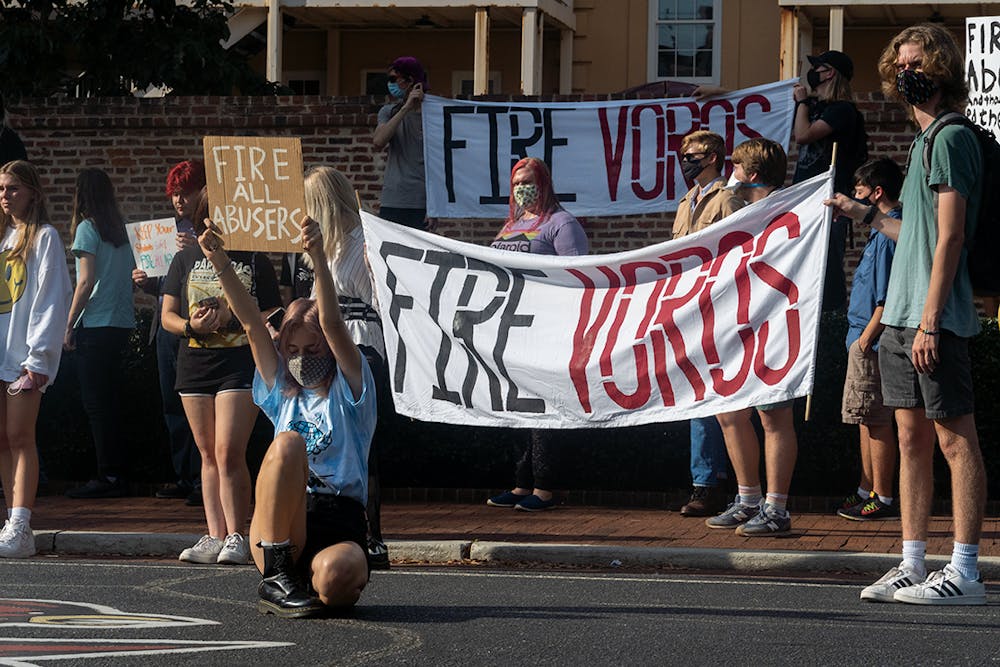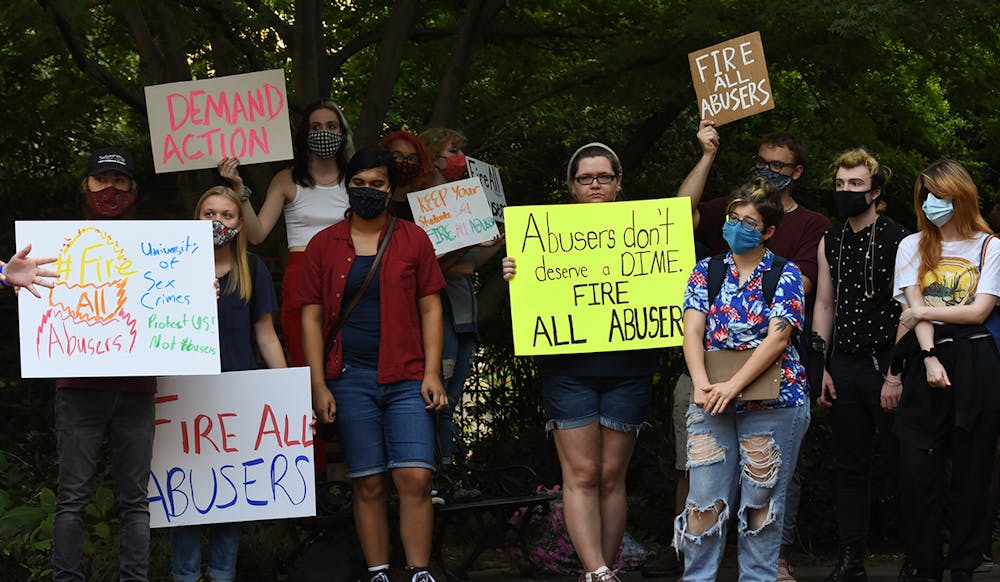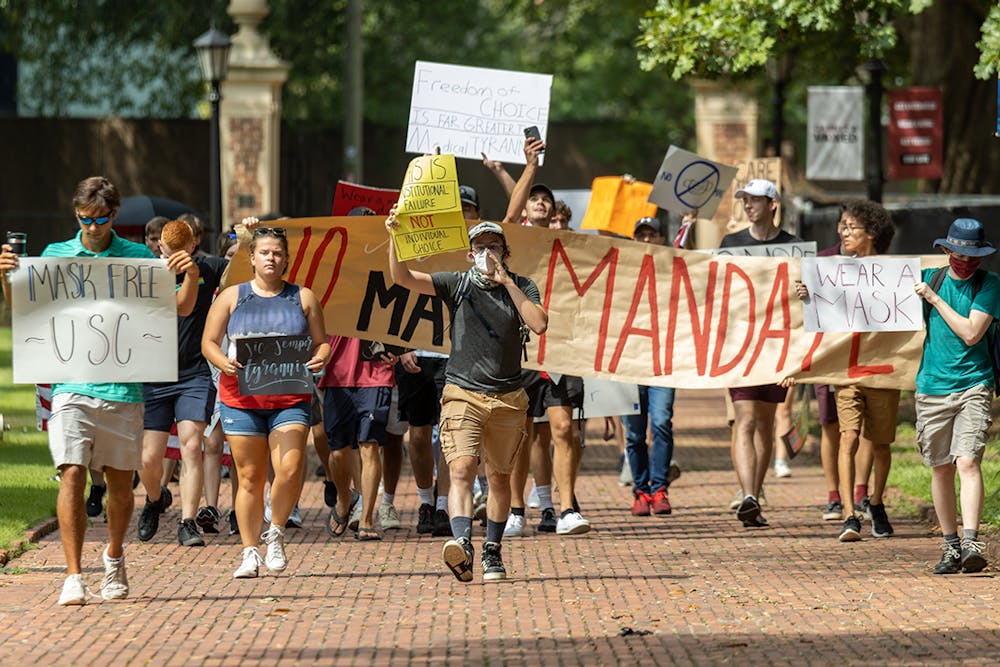In a world consumed with social injustices, humanitarian crises, climate change and global pandemics, we cannot afford the privilege of remaining silent. USC students should embrace and continue the tradition of protesting for their beliefs and follow in the footsteps of former students.
Some of us were taught to be timid and diffident, and others to be outspoken and assertive. Ignoring what's comfortable, we should strive to use our voices during these turbulent times.
"The university has a long history of supporting free speech and the right of groups and individuals to peacefully protest, even in cases where we may disagree with the ideas being shared," former university President Bob Caslen said in an email in January 2021.

Our university officials have not always been supportive throughout history. The Great Biscuit Rebellion of 1852 is a prime example of this. According to reporting done by The Atlantic, the dining facility on campus often served "wormy biscuits and rancid meat," on top of being compulsory for students. In the Great Biscuit Rebellion, 109 out of the 199 students enrolled signed an agreement that stated if the compulsory system was not abolished, they would disenroll from the college.
The university officials of that era were against losing a large population of their students, but were more resistant to giving in. According to The Atlantic, in "A History of the University of South Carolina," Edwin Luther Green wrote that although then-President James H. Thornwell acknowledged the poor quality of the food, he thought that "to grant the request was to yield to the spirit of rebellion."
What is now known as the Months of May is another example of the university's resistance to student protests and freedom of speech. During this month in 1970, students were protesting the Vietnam War, the Kent State shootings and, in turn, the infringement of their First Amendment rights by university officials on campus.
"Students were very concerned about how the university administration and local officials were responding to freedom of speech; faculty were also concerned about protecting freedom of speech," said university archivist Elizabeth West on "Remembering The Days Podcast — Episode 8." "The students felt that the police were being heavy-handed in the way they arrested students. Plain clothes police had been placed in Russell House to try to keep certain anti-establishment activists out of there, and they were checking student IDs and there were a lot of clashes and harassment."
For many of us, attending a university is not only an opportunity to further our education, but to strengthen our spirit of rebellion. At USC, tens of thousands of students come from all around the country and the world. With those students comes diverse ideas, beliefs and opinions ready to embraced and fostered.

Regardless of these ideals, beliefs and opinions, universities should create an atmosphere or environment that can tolerate differences. Thus, we have clubs ranging from neuroscience to improv comedy, ballroom dance to boxing, political alignment and more. Not only does USC provide a safe environment, but we as a student body are encouraged to speak up and use our First Amendment rights.
The USC chapter of Turning Point USA protested in August this year against the mask mandate set by the university.
"USC was very welcoming to the idea," event coordinator Madison Owens, second-year criminal justice student, said. "They were very respectful, and they set up a stage for us to speak with a microphone on Greene Street after we protested on the Horseshoe. So, it was very, very helpful, the way they set things up. They were making sure that things stayed, like, peaceful and civil."
The protest upset many students and was even met by the Carolina Socialists, who protested against Turning Point USA. With the support USC currently offers, we should be able to confidently vocalize our beliefs, regardless of their popularity or lack thereof. We should also expect to be countered by those who oppose us.
The Gamecocks are a community, and as long as we’re not inciting violence, spewing hate or forcing our beliefs on others, we should be able to maintain a respectful atmosphere. Let us continue the tradition of protest at USC with open minds and passion.

